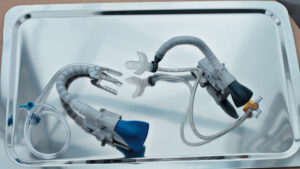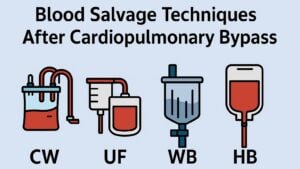Introduction: Extracorporeal membrane oxygenation (ECMO) is widely used; however, studies on the long-term outcomes of ECMO are scarce. We investigated the long-term clinical outcomes of acute kidney disease (AKD) in patients receiving ECMO.
Methods: Electronic data (2009-2018) were retrospectively collected from a multicenter database. Patients were divided into two groups (AKD and non-AKD) according to their AKD status 8-90 days after the initiation of ECMO. Inverse probability of treatment weighting (IPTW) was used to balance baseline covariates between the two groups. The primary outcomes were major adverse kidney events (MAKEs) and major adverse cardiovascular events (MACEs), and the secondary outcomes were all-cause readmission, sepsis-related readmission, infection-related readmission, and dementia.
Results: Total 395 patients were eligible for analysis; of them, 160 patients (40.5%) developed AKD. The AKD group had a higher risk of MAKEs (hazard ratio [HR]: 2.06; 95% confidence interval [CI]: 1.68-2.53) than did the non-AKD group. Subgroup analysis revealed that the observed unfavorable effect of AKD on the risk of MAKEs was more pronounced in patients receiving venovenous ECMO than in those receiving venoarterial ECMO (HR: 5.69 vs. 1.85, respectively; P for interaction = 0.004). AKD group had a higher risk of MACE during the initial 3-year post- ECMO in comparison to those without (HR: 1.68; 95% CI: 1.22-2.30). Moreover, the risks of all-cause, sepsis-related, and infection-related readmissions were high in AKD survivors.
Conclusions: AKD is associated with an increased risk of long-term MAKEs and initial 3-year MACE in ECMO recipients. In addition, AKD is associated with increased risks of all-cause, infection-related, and sepsis-related readmissions.







